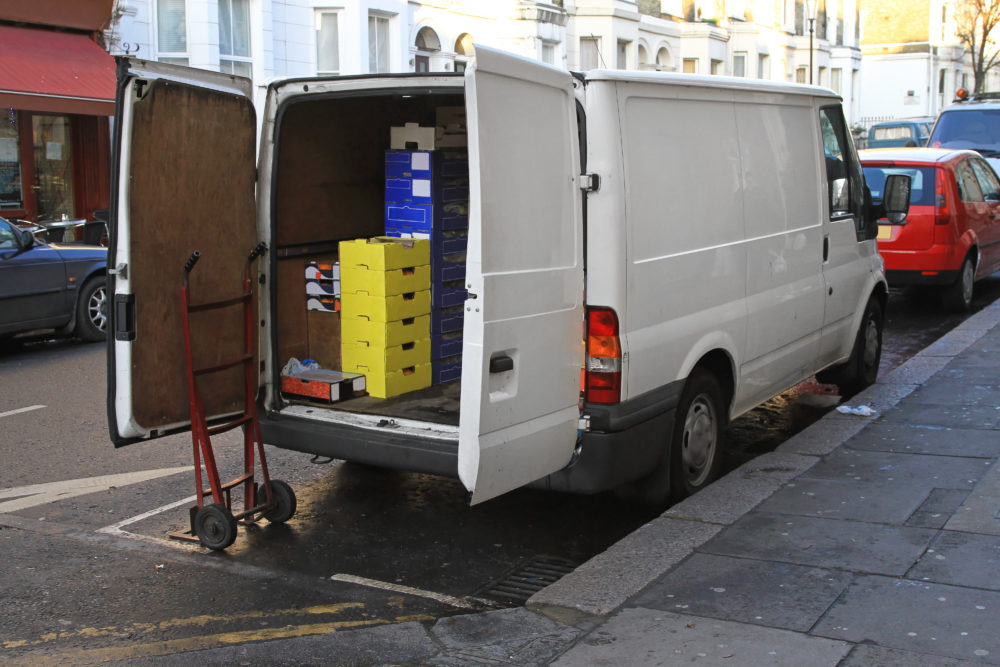Investing in a new van is one of the biggest decisions a small business can make. Your work van is one of, if not, the most essential tool of your trade. When choosing a vehicle, you will want to be sure that you are making the right investment, one which will see your business get a good return from your van.
This guide will help you determine the right kind of van for your needs. We will also advise you on finding a van that best suits your budget. Make the right decision and select the van that will work best for your business, and you will find it quickly becomes an asset to your company.
Can I afford a new van?
Whether you are buying your first van, replacing an existing vehicle or extending your fleet, budget is likely to be your first consideration. Work out how much you can afford to spend on your new van. Factor in the insurance costs and the running costs of the vehicle. A larger van will use more fuel, for example, and could cost more to insure. Small vans tend to be cheaper to buy, but they have limited capacity and can only carry smaller, lighter loads.
Even if a vehicle seems above your price range, there are plenty of options available for you. You don’t have to buy new. There are thousands of used vans for sale in top condition, which will offer you years of great performance. You could also apply for a business loan to cover the purchase or look at vehicle finance options. Many vehicle dealers allow buyers to pay monthly through a finance package.
Things to consider when choosing a van
- What will the van be used for?
- What loads will the van be transporting?
- Will the van need to accommodate passengers?
- Will the van be used for local or long-distance travel?
Van use
Vans are needed for all kinds of businesses. You might initially think of a van as being used for construction, deliveries and for carrying work tools, but there are all kinds of commercial applications for vans. A school or care home may benefit from a minibus; a dog walker or groomer will need caged transport; a band might use a van to transport its equipment to shows.
Journey distance and terrain
It is important to consider where your new van will be driving. If you or your drivers and passengers will be covering a long distance in the van, then comfort level will become a factor. You may wish to pay a little more for a van with soft leather seats, air conditioning, a radio and other comfort features. If the van will transport passengers, it must be meet relevant safety standards. If your van will visit a lot of work sites and agricultural sites, it will need to be able to handle rough terrain.
Van loads
After the budget, the load capacity of your new van should be the biggest decision-making factor.
You should be aware of several metrics when managing or driving a loaded van.
- ‘Unladen weight’ – weight of the empty vehicle
- ‘Payload’ – weight of goods to be carried minus passengers, fuel and other factors
- ‘Gross vehicle weight’ – the overall total weight of the van and everything in it
When you buy a van, make sure you know what it weighs and what its maximum capacity is.
Overloading a vehicle can result in penalties from the authorities which include heavy fines and even confiscation of that vehicle. An overloaded van can be dangerous on the roads as the stopping distance can be drastically altered, the van may tip, and the mechanics of the van may be affected by strain.
Converting the van to suit your needs
When selecting a van, you might need to carry out some modifications to make it work for your business. Factor the cost of any changes into your budget. It can often be cheaper and easier to buy a simple, stripped out van and carry out the changes yourself, rather than searching out and buying a specially modified vehicle.
Perhaps the most famous work van of all time is the Ford Transit. This versatile van can handle small to mid-sized loads comfortably, has easy access at the back for loading and unloading, and it can be modified with side doors, internal seating, windows, cages, shelving and all manner of other internal changes. Another similar van which is ideal for customising is the Mercedes Sprinter.
Van types and uses
In addition to the Transit van, mentioned above, there are lots of types of commercial work vehicle. Small vans are a little larger than a standard SUV, with room in the back to carry a small set of work tools or a selection of delivery packages. Larger vans are ideal for moving furniture, transporting goods, and carrying larger tools and equipment.
If your van will be loaded with heavy items, think about how you will load up the van. City vans which navigate narrow streets might benefit from a sliding door at the side of the van, so goods can be unloaded curb-side. Vans with tail lifts and ramps can accommodate heavier items that need to be rolled or pushed, rather than lifted.
Flatbed trucks and tippers are ideal for scrap collection, furniture removals, landscaping, and equipment deliveries. Pickup trucks often have a rear flatbed which can transport items safely, and these might be better for small commercial applications.
Insuring your work van
When you buy or lease any vehicle, you need to secure insurance for it. The costs of insuring a commercial vehicle can be higher than an average car or SUV because working vehicles come with a unique set of risk factors. When you choose a new van for your business, make sure you are choosing a vehicle you can afford the insurance for. Bear in mind that the larger the vehicle, the higher the premium is likely to be. Generally speaking the more expensive the van the higher the cost will be to insure.
Simon Joyce is managing director of Anchor Vans.





